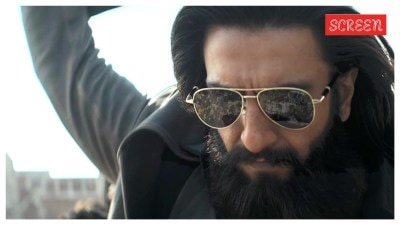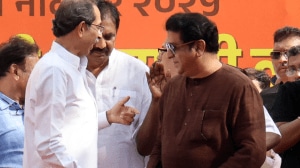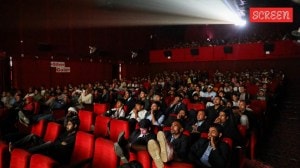Case and effect: Verdict on a 60-year-old case
On September 24,a special bench of the Allahabad High Court will decide on a 60-year-old case for the title of the disputed shrine in Ayodhya,Uttar Pradesh. The verdict on one of the oldest,the most sensitive and the most complicated cases of independent India could have major ramifications for the countrys political parties. Seema Chishti explains the cases and the possible implications of the verdict
On September 24,a special bench of the Allahabad High Court will decide on a 60-year-old case for the title of the disputed shrine in Ayodhya,Uttar Pradesh. The verdict on one of the oldest,the most sensitive and the most complicated cases of independent India could have major ramifications for the countrys political parties.
Seema Chishti explains the cases and the possible implications of the verdict
What are these title suits about?
The High Court will rule on four title suits. The first suit was filed sixty years ago,on January 16,1950,by Gopal Singh Visharad,asking for the right to worship. The court restrained the removal of idols,and allowed the worship to continue. The State of UP appealed against the injunction on April 24,1950. In 1950,Ramchandra Paramhans filed another suit,but this was withdrawn later. In 1959,the Nirmohi Akhara entered the fray and filed the third suit,asking for possession of the spot,doing away with the court-appointed receiver and claiming that it was the custodian for the spot at which Ram was supposedly born. On December 18,1961,the UP Sunni Central Board of Waqfs moved in to claim possession. On July 1,1989,another civil suit was filed in the name of Bhagwan Shree Ram Lalla Virajman for declaration and possession of the Masjid complex. All the four disputes were pending before a Faizabad court till 1989,but were later transferred on October 23,1989,to a special bench of the Allahabad High Court.
Were any attempts made to settle the cases out of court?
Former prime ministers Chandra Shekhar and P V Narasimha Rao made attempts to get the VHP and the All India Babri Action Committee to come to an agreement,but after the demolition,there has been no real attempt.
In July this year,after the closing of arguments,the Allahabad High Court,under Section 89 of the Criminal Penal Code,made attempts at a reconciliation. But it failed. Zafaryab JIlani,Lucknow-based litigant and former member of the All India Babri Masjid Action Committee,said,They want us to surrender our rights,and we can8217;t do that. Ranjana Agnihotri,lawyer for the Mandir side,said,We firmly believe that moksha salvation will be obtained only after the darshan of Ram Lalla. So no compromise was possible.
What are the immediate legal implications once the verdict is announced?
If the verdict goes against them,organisations like the VHP will renew their campaign,saying matters of faith cannot be adjudicated upon,and hence,the court ruling on this would be unacceptable to them. Lawyers agree that the verdict,whichever way it goes,will be immediately appealed in a higher courtthe Supreme Court of India. So,its not over yet.
What will the verdict mean for the Congress,BJP,BSP and the others?
For the Congressin power at the Centre but which shares a somewhat ambiguous relationship with the BSP government in UPthe immediate responsibility would be to ensure that law and order is maintained and the situation doesnt flare up like in 1992. With elections due in UP in 2012,both the BSP and the Congress would have an interest in appearing even-handed and so,it will be in their interest to ensure peace and harmony.
With Mulayam Singhs boast when he was CMparinda par nahin phadka sakegaMayawati would want to show to the minorities that her government can be equally tough about maintaining peace. She would also want to capitalise on the drift in the SPs Mulayam vote.
For the BJP,things could be a little more complicated. There is a section which would like to make political use of the moment and play on Hindu hurt or pride,depending on the verdict. But the other section in the party,which would want to distance itself from its ballistic image of the past,wouldn8217;t want to use the verdict to gain political relevance. With Bihar elections coming up,a shrill stand which scares off Muslims wouldnt help a shaky BJP-Nitish Kumar coalition and might,instead,end up helping the Congress or Lalu Prasad Yadav consolidate the minority vote.
The Left,in power in three states,would want to ensure peace to try and win over the minorities.
- 01
- 02
- 03
- 04
- 05































